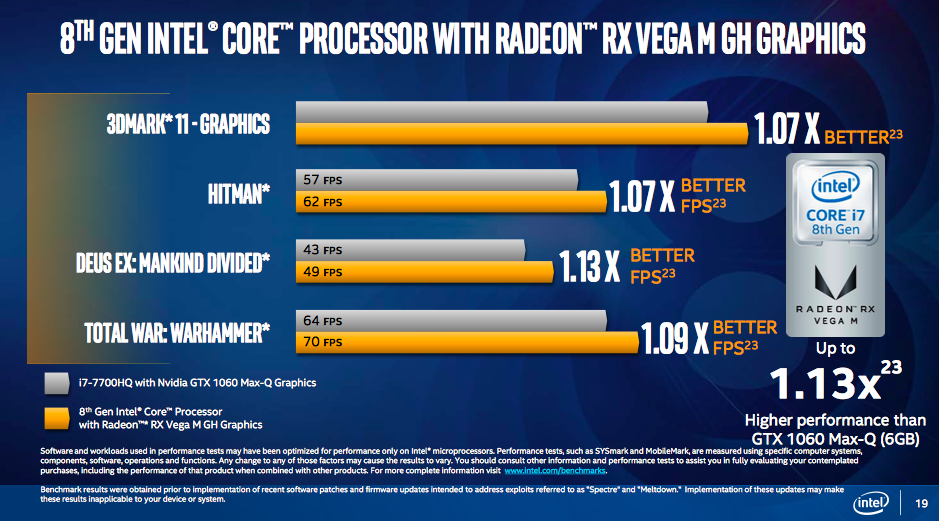Intel revealed more details about its new 8th generation CPUs with AMD’s RX Vega M graphics, and if you’re a VR video producer, avid gamer, or just a lover of fast laptops (like all photographers), you’re going to want to wait for this tech to hit your favorite laptop.
VR and 360 videos especially have been a pain for content creators to work with. Even with the fastest of computers, it’s a slog, and that’s just on the desktop front. On laptops, it’s been even more of a wasteland, especially if you want to travel light. Anything with enough power for road work has generally been a rather thick and fan-laden affair. These new chips, officially called the “8th Gen Intel Core with Radeon RX Vega” series promises to change that, at least if you believe their official presentation on it that illustrates what’s possible.
What really made me sit up, though, was the claims in the presentation that the processor can outpace an NVidia GTX 1060 GPU – one that I bought not that long ago specifically because it flies through 360 video work. This is no small feat:
It’s no secret that Apple has left a big, fat 360-degree hole in my heart lately with its comparatively underpowered and overpriced small form factor machines. I know more than a few 360 and VR producers that have jumped ship because of lacking hardware on the Apple side of things. I’m one of them, having switched my desktop to a PC but still clinging to a MacBook Air to indulge my tastes for Apple’s software.
Slapping these new Intel chips into a MacBook Pro or a Mac mini (or heck, why not both?) would go a long way towards bringing high-end users back into the fold. What do you say, Apple?
[via Engadget]








Lol, I wouldn't be trusting Intel anytime soon after their latest fiasco.
Exactly. At this point there is no way of really knowing how fast they will be once they actually release a firmware to patch the issue. They are saying a loss of 5-30% performance once they fix the issue. Technically amd has the same issue but with them you arent gonna have any issues unless someone has physical access to your computer. Intels issue is that a hacker can remotely access your system.
I don't see this coming to a 13'' MBP, but sure that'd be lovely.
I sure wish it would!
The comparison is not with a GTX 1060 the author has linked to. It is with a GTX 1060 Max-Q which is a mobile GPU with significantly lower Performance than the GTX 1060.